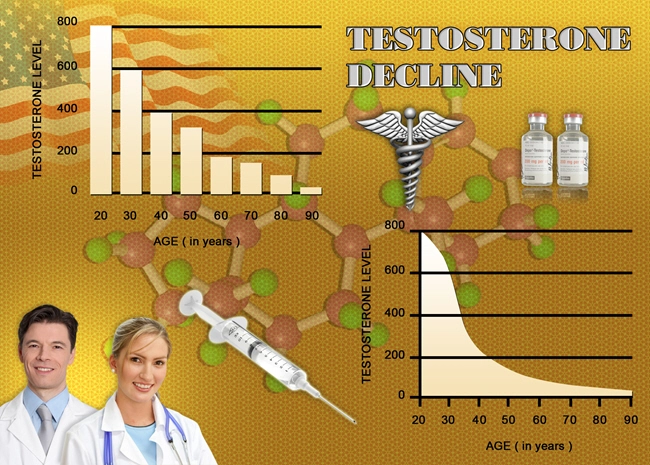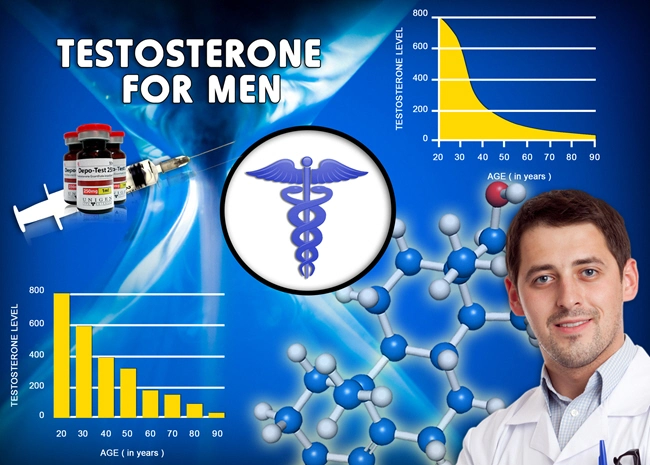
Introduction
Testosterone propionate, a synthetic derivative of the naturally occurring hormone testosterone, has been widely utilized for its anabolic and androgenic properties. While its benefits in enhancing muscle mass, strength, and libido are well-documented, the effects of testosterone propionate on cardiovascular health in American men have garnered significant attention and concern. This article delves into the intricate relationship between testosterone propionate and heart and vascular health, providing a comprehensive overview for American males.
Cardiovascular Risks Associated with Testosterone Propionate
The use of testosterone propionate has been linked to an increased risk of cardiovascular events, including myocardial infarction and stroke. Studies have shown that exogenous testosterone can lead to adverse changes in lipid profiles, such as decreased high-density lipoprotein (HDL) cholesterol and increased low-density lipoprotein (LDL) cholesterol. These alterations can contribute to the development of atherosclerosis, a condition characterized by the buildup of plaque in the arteries, which can ultimately lead to heart disease.
Furthermore, testosterone propionate has been associated with an increased risk of blood clots, particularly in individuals with pre-existing cardiovascular conditions. The hormone's impact on the coagulation system can lead to the formation of thrombi, which can obstruct blood flow and result in life-threatening events such as pulmonary embolism or deep vein thrombosis.
Impact on Blood Pressure and Heart Function
Testosterone propionate has been shown to influence blood pressure and heart function in American men. Some studies suggest that the hormone can lead to an increase in blood pressure, potentially exacerbating hypertension in susceptible individuals. Elevated blood pressure is a significant risk factor for cardiovascular disease and can contribute to the development of heart failure and stroke.
Moreover, testosterone propionate may affect heart function by altering the myocardial structure and function. Research has indicated that the hormone can lead to left ventricular hypertrophy, a condition characterized by the thickening of the heart muscle. While this adaptation may initially enhance cardiac performance, it can ultimately lead to impaired heart function and an increased risk of heart failure.
Mitigating Cardiovascular Risks
Despite the potential cardiovascular risks associated with testosterone propionate, there are strategies that American men can employ to mitigate these concerns. Regular monitoring of lipid profiles, blood pressure, and cardiac function is crucial for individuals using testosterone propionate. Healthcare providers may recommend lifestyle modifications, such as adopting a heart-healthy diet, engaging in regular physical activity, and maintaining a healthy body weight, to reduce the risk of cardiovascular events.
In some cases, healthcare providers may prescribe medications to manage lipid levels, blood pressure, or other cardiovascular risk factors. It is essential for American men using testosterone propionate to work closely with their healthcare team to develop a personalized plan that balances the benefits of the hormone with the potential risks to cardiovascular health.
Conclusion
The use of testosterone propionate in American men has been associated with an increased risk of cardiovascular events, including myocardial infarction, stroke, and blood clots. The hormone's impact on lipid profiles, blood pressure, and heart function underscores the importance of careful monitoring and management in individuals using testosterone propionate. By working closely with healthcare providers and adopting heart-healthy lifestyle habits, American men can strive to minimize the potential cardiovascular risks associated with this synthetic hormone while maximizing its benefits.
Contact Us Today For A Free Consultation
Dear Patient,
Once you have completing the above contact form, for security purposes and confirmation, please confirm your information by calling us.
Please call now: 1-800-380-5339.
Welcoming You To Our Clinic, Professor Tom Henderson.

- Testosterone Propionate: Benefits, Risks, and Hormonal Balance for American Males [Last Updated On: March 17th, 2025] [Originally Added On: March 17th, 2025]
- Testosterone Propionate's Impact on Cognitive Function in American Males: Benefits and Risks [Last Updated On: March 17th, 2025] [Originally Added On: March 17th, 2025]
- Testosterone Propionate: Enhancing Male Fertility in American Men - Benefits and Risks [Last Updated On: March 18th, 2025] [Originally Added On: March 18th, 2025]
- Testosterone Propionate in American Sports: Ethical Issues and Health Risks for Male Athletes [Last Updated On: March 18th, 2025] [Originally Added On: March 18th, 2025]
- Testosterone Propionate's Role in Male Pattern Baldness Among American Men [Last Updated On: March 18th, 2025] [Originally Added On: March 18th, 2025]
- Testosterone Propionate: Enhancing Sleep Quality in American Men [Last Updated On: March 19th, 2025] [Originally Added On: March 19th, 2025]
- Testosterone Propionate's Role in Weight Management for Obese American Males [Last Updated On: March 20th, 2025] [Originally Added On: March 20th, 2025]
- Testosterone Propionate: Benefits, Risks, and Ethical Use in American Men [Last Updated On: March 20th, 2025] [Originally Added On: March 20th, 2025]
- Long-Term Health Risks of Testosterone Propionate Use in American Men [Last Updated On: March 21st, 2025] [Originally Added On: March 21st, 2025]
- Testosterone Propionate's Impact on Immune Function in American Males: A Comprehensive Review [Last Updated On: March 21st, 2025] [Originally Added On: March 21st, 2025]
- Testosterone Propionate: Boosting Energy Levels in American Men [Last Updated On: March 21st, 2025] [Originally Added On: March 21st, 2025]
- Testosterone Propionate: A Promising Therapy for Osteoporosis in American Men [Last Updated On: March 21st, 2025] [Originally Added On: March 21st, 2025]
- Testosterone Propionate: A Promising Treatment for Depression in American Males [Last Updated On: March 22nd, 2025] [Originally Added On: March 22nd, 2025]
- Testosterone Propionate: Benefits, Risks, and Use in American Male Bodybuilding [Last Updated On: March 22nd, 2025] [Originally Added On: March 22nd, 2025]
- Testosterone Propionate: A Promising Treatment for Chronic Pain in American Men [Last Updated On: March 22nd, 2025] [Originally Added On: March 22nd, 2025]
- Testosterone Propionate: Benefits, Risks, and Aesthetic Use in American Males [Last Updated On: March 22nd, 2025] [Originally Added On: March 22nd, 2025]
- Testosterone Propionate: A Promising Treatment for Obesity in American Males [Last Updated On: March 23rd, 2025] [Originally Added On: March 23rd, 2025]
- Testosterone Propionate Use and Diabetes Risk in American Males: A Comprehensive Analysis [Last Updated On: March 23rd, 2025] [Originally Added On: March 23rd, 2025]
- Testosterone Propionate: Psychological Effects and Risks for American Men [Last Updated On: March 23rd, 2025] [Originally Added On: March 23rd, 2025]
- Testosterone Propionate: A Promising Treatment for Chronic Fatigue in American Males [Last Updated On: March 23rd, 2025] [Originally Added On: March 23rd, 2025]
- Testosterone Propionate: Enhancing Muscle, Energy, and Psychological Health in American Men [Last Updated On: March 24th, 2025] [Originally Added On: March 24th, 2025]
- Testosterone Propionate's Cardiovascular Impact on American Men: Benefits, Risks, and Guidelines [Last Updated On: March 24th, 2025] [Originally Added On: March 24th, 2025]
- Testosterone Propionate: Enhancing Libido and Sexual Performance in American Men [Last Updated On: March 24th, 2025] [Originally Added On: March 24th, 2025]
- Testosterone Propionate: Enhancing Muscle Recovery in American Men - Benefits and Risks [Last Updated On: March 24th, 2025] [Originally Added On: March 24th, 2025]
- Testosterone Propionate: Enhancing Recovery and Performance in American Male Athletes [Last Updated On: March 24th, 2025] [Originally Added On: March 24th, 2025]
- Testosterone Propionate: Benefits and Risks in Hormone Replacement Therapy for American Males [Last Updated On: March 25th, 2025] [Originally Added On: March 25th, 2025]
- Testosterone Propionate: A Promising Treatment for Anemia in American Men [Last Updated On: March 25th, 2025] [Originally Added On: March 25th, 2025]
- Testosterone Propionate: Benefits, Risks, and Legal Issues for American Men [Last Updated On: March 25th, 2025] [Originally Added On: March 25th, 2025]
- Testosterone Propionate Use and Liver Health Risks in American Males [Last Updated On: March 25th, 2025] [Originally Added On: March 25th, 2025]
- Testosterone Propionate's Impact on Bone Health in American Men: A Comprehensive Analysis [Last Updated On: March 25th, 2025] [Originally Added On: March 25th, 2025]
- Testosterone Propionate's Impact on Blood Pressure in American Men: A Comprehensive Analysis [Last Updated On: March 25th, 2025] [Originally Added On: March 25th, 2025]
- Testosterone Propionate: Enhancing Sexual Function in American Men [Last Updated On: March 26th, 2025] [Originally Added On: March 26th, 2025]
- Testosterone Propionate: Enhancing Joint Health in American Men [Last Updated On: March 26th, 2025] [Originally Added On: March 26th, 2025]
- Testosterone Propionate: Enhancing Sexual Health in American Men - Benefits and Risks [Last Updated On: March 26th, 2025] [Originally Added On: March 26th, 2025]
- Testosterone Propionate: Enhancing Endurance in American Men - Benefits and Risks [Last Updated On: March 26th, 2025] [Originally Added On: March 26th, 2025]
- Testosterone Propionate's Impact on Immune System in American Men: Risks and Benefits [Last Updated On: March 26th, 2025] [Originally Added On: March 26th, 2025]
- Testosterone Propionate: A Promising Treatment for Muscle Wasting in American Males [Last Updated On: March 26th, 2025] [Originally Added On: March 26th, 2025]
- Testosterone Propionate: Benefits, Risks, and Legalities for American Weightlifters [Last Updated On: March 26th, 2025] [Originally Added On: March 26th, 2025]
- Testosterone Propionate: A Promising Stress Management Solution for American Men [Last Updated On: March 26th, 2025] [Originally Added On: March 26th, 2025]
- Testosterone Propionate's Impact on Cholesterol Levels in American Men: Cardiovascular Risks [Last Updated On: March 26th, 2025] [Originally Added On: March 26th, 2025]
- Testosterone Propionate in Anti-Aging: Benefits, Risks, and Clinical Insights for American Men [Last Updated On: March 26th, 2025] [Originally Added On: March 26th, 2025]
- Testosterone Propionate: Boosting Energy in American Men with Low Testosterone [Last Updated On: March 27th, 2025] [Originally Added On: March 27th, 2025]
- Testosterone Propionate: Managing Hormonal Imbalances in American Men [Last Updated On: March 27th, 2025] [Originally Added On: March 27th, 2025]
- Testosterone Propionate's Impact on Mood Swings in American Men: Benefits and Risks [Last Updated On: March 27th, 2025] [Originally Added On: March 27th, 2025]
- Testosterone Propionate: A Promising Treatment for Low Sperm Count in American Males [Last Updated On: March 27th, 2025] [Originally Added On: March 27th, 2025]
- Testosterone Propionate: Enhancing Strength and Performance in American Men [Last Updated On: March 28th, 2025] [Originally Added On: March 28th, 2025]
- Testosterone Propionate: Uses, Benefits, and Risks in Male Hormone Therapy [Last Updated On: March 29th, 2025] [Originally Added On: March 29th, 2025]
- Testosterone Propionate: Uses, Benefits, and Risks for American Men's Health and Fitness [Last Updated On: March 29th, 2025] [Originally Added On: March 29th, 2025]
- Testosterone Propionate: Cardiovascular Effects and Risks in American Men [Last Updated On: March 29th, 2025] [Originally Added On: March 29th, 2025]
- Testosterone Propionate: Benefits, Dosage, and Risks for American Men's Muscle Building [Last Updated On: March 30th, 2025] [Originally Added On: March 30th, 2025]
- Testosterone Propionate: Enhancing Mental Health in American Men - Benefits and Risks [Last Updated On: March 30th, 2025] [Originally Added On: March 30th, 2025]
- Testosterone Propionate: Enhancing Sexual Health and Performance in American Men [Last Updated On: March 30th, 2025] [Originally Added On: March 30th, 2025]
- Testosterone Propionate: Enhancing Hormonal Health in American Men [Last Updated On: March 31st, 2025] [Originally Added On: March 31st, 2025]
- Testosterone Propionate: Enhancing Bone Density in American Men [Last Updated On: April 2nd, 2025] [Originally Added On: April 2nd, 2025]
- Testosterone Propionate's Impact on Emotional Health in American Men [Last Updated On: April 2nd, 2025] [Originally Added On: April 2nd, 2025]
- Testosterone Propionate in Sports: Benefits, Risks, and Ethical Dilemmas for American Athletes [Last Updated On: April 4th, 2025] [Originally Added On: April 4th, 2025]
- Testosterone Propionate: Enhancing Strength and Risks for American Men [Last Updated On: April 5th, 2025] [Originally Added On: April 5th, 2025]
- Testosterone Propionate: A Potential Treatment for Fatigue in American Males [Last Updated On: April 5th, 2025] [Originally Added On: April 5th, 2025]
- Testosterone Propionate: Benefits, Risks, and Uses in American Men's Health and Fitness [Last Updated On: April 6th, 2025] [Originally Added On: April 6th, 2025]
- Testosterone Propionate: A Fast-Acting Solution for Muscle Loss in American Males [Last Updated On: April 7th, 2025] [Originally Added On: April 7th, 2025]
- Testosterone Propionate: Enhancing Sexual Desire and Function in American Men [Last Updated On: April 8th, 2025] [Originally Added On: April 8th, 2025]
- Testosterone Propionate: Enhancing Strength Training in American Men - Benefits and Risks [Last Updated On: April 8th, 2025] [Originally Added On: April 8th, 2025]
- Testosterone Propionate: Psychological Impacts and Benefits for American Men [Last Updated On: April 10th, 2025] [Originally Added On: April 10th, 2025]
- Testosterone Propionate: Enhancing American Men's Health Through Hormone Replacement Therapy [Last Updated On: April 11th, 2025] [Originally Added On: April 11th, 2025]
- Testosterone Propionate: Benefits, Administration, and Considerations for American Men's HRT [Last Updated On: April 12th, 2025] [Originally Added On: April 12th, 2025]
- Testosterone Propionate: Effects, Risks, and Reproductive Health Impact in American Men [Last Updated On: April 13th, 2025] [Originally Added On: April 13th, 2025]
- Testosterone Propionate: Enhancing Sports Performance and Associated Risks for American Athletes [Last Updated On: April 14th, 2025] [Originally Added On: April 14th, 2025]









